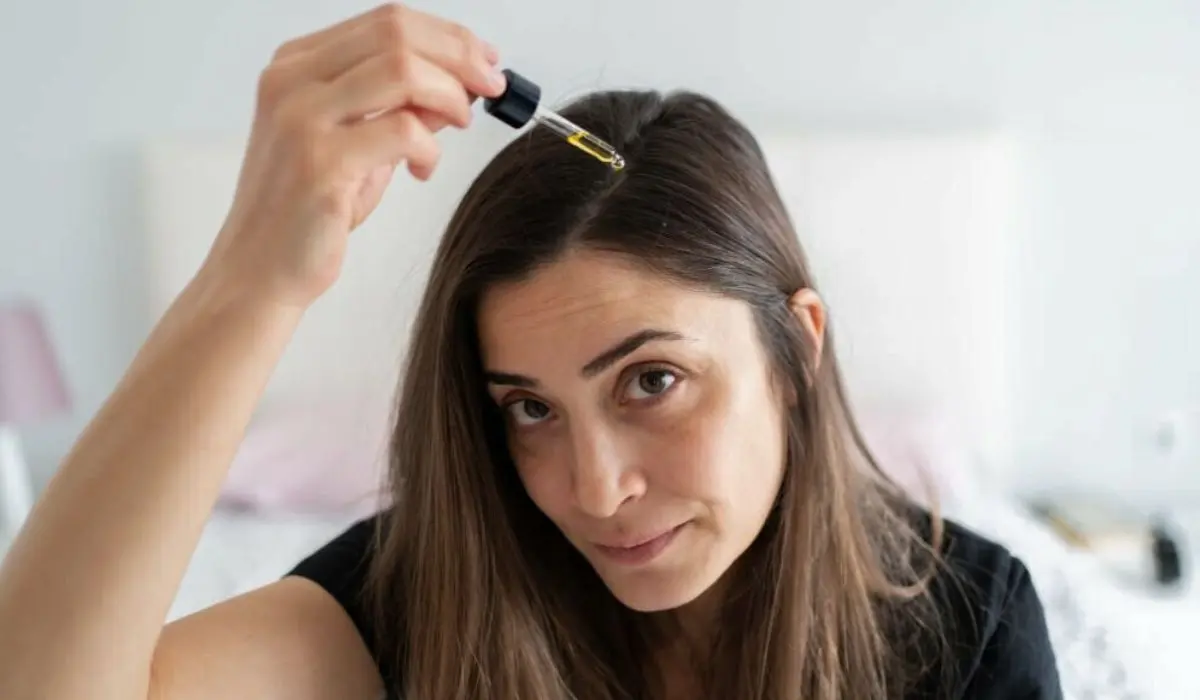Maintaining healthy and beautiful hair goes beyond the usual shampoo and conditioner routine. Haircare oils play a pivotal role in nourishing and rejuvenating your locks. This comprehensive guide aims to provide insights into the diverse world of hair oils, helping you make informed choices based on your hair type and concern.
Why Is It Important To Choose The Right Hair Care Oil?
Selecting the right hair care oil is crucial for several reasons, as it directly influences the health, appearance, and manageability of the hair. Some of them include-

1. Nourishment And Moisture
Haircare oils act as powerful moisturizers, nourishing the hair shaft and preventing hair falls. Choosing an oil that suits your hair type ensures that your hair receives the appropriate level of hydration. Dry hair benefits from deeply moisturizing oils like coconut or argan while lighter oils like jojoba are suitable for oily ones.
2. Protection From Damage
Hair is often exposed to various environmental factors and styling products that can cause hair damage. The right oil forms a protective layer shielding the hair from harsh elements and preventing issues like split ends and breakage. Oils like almonds are known for adding a barrier to the hair reducing potential damages caused by environmental stressors.
3. Promotion Of Hair Growth
Certain oils like almonds and castor are rich in nutrients that promote hair growth. They strengthen the hair follicles, reduce hairfall, and stimulate the scalp creating a conducive environment for the the hair to grow.
4. Balancing Oil Production
Individuals with oily hair often struggle with excess sebum production. Choosing the right oil like jojoba helps balance oil production by mimicking the natural oils produced by the scalp. This prevents the hair from overproducing oil and reduces the greasy appearance of the hair.
5. Enhanced Shine And Luster
The right haircare oil can significantly improve the shine and luster of the hair. Oils like coconut and argan impart a natural sheen making the hair look healthier and vibrant.
6. Reduction Of Frizz
In humid conditions, frizzy hair can be quite a concern. Some of the oils work wonders when it comes to taming tangled hairlocks and adding a polished look to the hair.
How To Choose The Right Hair Care Oil?
Choosing the right haircare oil involves a thoughtful consideration of various factors including your hair type and your specific concern. So when you select a haircare oil you should look for the following-
- Identify Your Hair Type– Different types of hair have distinct needs and choosing an oil that aligns with your hair type ensures results.
- Assess Specific Hair Concerns– Identify any specific concerns you want to address such as dryness, frizz, hair loss, or lack of shine. Each hair oil has unique properties that can target specific issues which could help the hair grow thickly.
- Research Different Hair Oils– Familiarize yourself with each hair oil and its benefits. Coconut, argan, jojoba, olive, and castor oils all have a specific advantage so knowing them can help you make an informed decision.
- Mix And Match Oils– Experimenting with hair oil combinations can help you find a customized solution for your hair. For instance, you could mix argan with castor to increase the luster in your hair.
- Check For Purity And Quality– Opt for high-quality, pure oils without additives or synthetic ingredients. Cold-pressed and unrefined hair oils retain more nutrients making them effective for hair.
What Are Some Popular Haircare Oils?
They include-
- Coconut Oil– It not only ensures deep conditioning but also facilitates hair growth and less protein loss. Dry and damaged hair could use some.
- Argan Oil– adds shine, reduces frizes, and moisturizes all hair types especially frizzy hair.
- Jojoba Oil– Hydrates the scalp and helps the scalp retain its oil balance. Moreover, it prevents dandruff in oily hair.
- Olive Oil-It reduces split ends along with helping retain moisture that can be used for dry and brittle hair.
Conclusion
Different oils can be applied in various ways, such as pre-shampoo treatments, overnight masks, or post-shampoo serums. Experimenting with these methods can help you incorporate oil seamlessly into your routine. By considering all the factors and taking a thoughtful approach you can choose the right hair oil to tend to your unique dermatologic needs.

